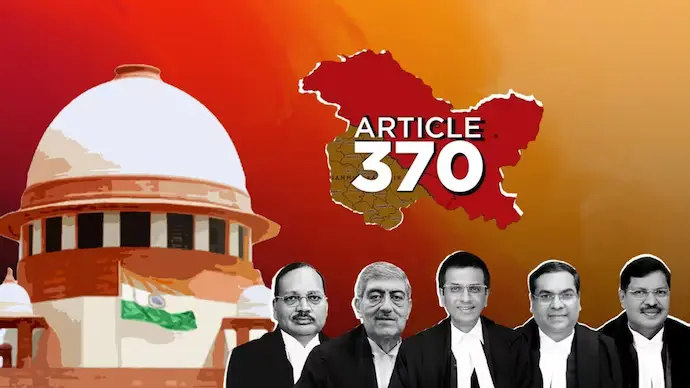
The Constitution bench of the Supreme Court has pronounced its verdict on a batch of petitions challenging the abrogation of Article 370 and bifurcation of the erstwhile state of Jammu and Kashmir into two Union territories.
The abrogation of Article 370
The top court upheld the government’s decision to abrogate Article 370 and said that steps should be taken to conduct elections in the assembly by September 30 next year. SC also upheld reorganisation of Ladakh as Union Territory.
Article 370, which was abrogated on August 5, 2019, was an interim arrangement due to war conditions in the erstwhile state, Justice Chandrachud said.
What was the meaning of Article 370
Article 370 of the Indian Constitution granted special autonomy to the region of Jammu and Kashmir. It allowed the state to have its own constitution and decision-making authority in many matters, except for defense, foreign affairs, finance, and communications. The provision aimed to provide a level of autonomy to Jammu and Kashmir within the Indian Union.
Changes to Article 370
In August 2019, the Government of India, led by Prime Minister Narendra Modi, took a historic step by abrogating Article 370 through a Presidential Order and a subsequent passage of a resolution in Parliament. This move led to the reorganization of the state into two separate Union Territories—Jammu & Kashmir and Ladakh.
Legal Challenges in abrogation of Article 370
The abrogation of Article 370 faced legal challenges, with individuals and groups questioning its constitutional validity. Legal debates centered around the process followed in revoking the special status and the implications for the people of Jammu and Kashmir.
Supreme Court’s Role
The Supreme Court of India plays a crucial role in interpreting and adjudicating constitutional matters. It’s common for legal challenges related to significant constitutional changes to be brought before the Supreme Court for examination.
Impact of courts verdict on Article 370
The abrogation of Article 370 marked a significant shift in the constitutional framework concerning Jammu and Kashmir. The legal aspects and implications have been subject to scrutiny, and any Supreme Court verdict on this matter would have profound consequences for the constitutional understanding of federalism and autonomy within the Indian Union.
CLICK HERE TO READ MORE DETAILS
Click here to join us on TELEGRAM
